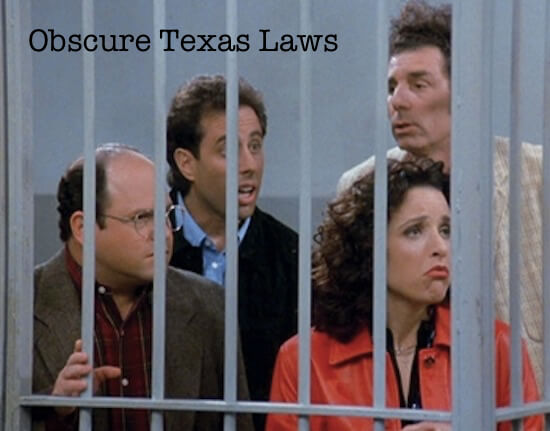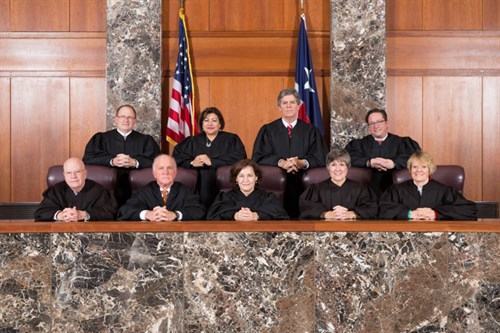
Craigslist-Related Crimes | New Crimes in the Digital Age
 Gone are the days of flipping through your local newspaper’s classified section and circling your favorite ads. These days, Craigslist is the new classifieds of Fort Worth and Dallas. It is the one stop shop source to find a new car, truck, job, furniture, garage sale, or even a love interest. With the rise of Craigslist (and other online forums), there has also been an increase in criminal activity ranging from online scams to fraud and theft. Police stings based on advertisements from Craigslist are also common. Police have seen such a meteoric rise in these “Craigslist related crimes”, that many departments have established “safe exchange locations where transactions can occur under the watchful eye of local law enforcement.
Gone are the days of flipping through your local newspaper’s classified section and circling your favorite ads. These days, Craigslist is the new classifieds of Fort Worth and Dallas. It is the one stop shop source to find a new car, truck, job, furniture, garage sale, or even a love interest. With the rise of Craigslist (and other online forums), there has also been an increase in criminal activity ranging from online scams to fraud and theft. Police stings based on advertisements from Craigslist are also common. Police have seen such a meteoric rise in these “Craigslist related crimes”, that many departments have established “safe exchange locations where transactions can occur under the watchful eye of local law enforcement.
Whenever people meet to engage in a transaction, crime can occur. These crimes can take place anywhere, whether you are in an urban or rural area, in the parking lot of the local shopping center, or even on your own front porch. Craigslist is easily accessible, and is increasingly used to create opportunities for one party to take advantage of another. It is essential to be vigilant whenever meeting up with anyone from the Internet.
Craigslist Criminal Investigations | Fort Worth, Texas
With the advent of Craigslist, law enforcement agencies have seen a few specific areas of criminal activity increase rapidly. These investigations into alleged crimes often facilitated by Craigslist include:
- Craigslist Robbery: Increasingly, people will post ads on craigslist looking to buy or sell an expensive item, such as a cell phone, and when the other party arrives take either the item or the money by force. Avoid being a target by meeting buyers or sellers at a “safe exchange” location set up by the police department.
- Craigslist Prostitution: Craigslist is full of ads looking for love, and both men and woman can get caught up in activity they may not have even realized was criminal until too late. Craigslist is used to source potential targets, and can result in charges from soliciting sex with a minor to soliciting sex for pay. Police departments are increasingly using Craigslist to set up sting operations to catch people trying to engage in prostitution.
- Craigslist Drug Charges: Police are seeing an increase in advertisements for illegal drugs posted on Craigslist using code words. Engaging in a dialogue with someone posting one of these ads could lead police to believe you are involved in drug dealing or drug trafficking through ads placed on Craigslist.
Defending Craigslist-Related Criminal Cases
Defense of Craigslist-related criminal charges can be a very complex proposition, requiring legal counsel experienced in these types of matters and the technology it involves. Forensic Computer Specialists and other experts may be necessary to the investigation and protecting your constitutional rights. Seek counsel from experienced criminal defense attorneys at Barnett Howard & Williams PLLC, former prosecutors with an in-depth understanding of the criminal justice system and its applications in today’s Internet-oriented society.
Contact Our Fort Worth Craigslist Crimes Defense Attorneys Today!
At Barnett Howard & Williams PLLC, our attorneys understand how to investigate and defend against complex computer-related criminal charges, including Craigslist-related charges. To schedule a free consultation, contact us at our offices in Fort Worth, Texas, at 817-993-9249.
Barnett Howard & Williams PLLC
based on
30 Google+ Reviews.


 Our firm has represented many defendants in Fort Worth with cases stemming from a bait car or a Backpage ad. For those of you not familiar with either, let me explain Bait Cars and Backpage.
Our firm has represented many defendants in Fort Worth with cases stemming from a bait car or a Backpage ad. For those of you not familiar with either, let me explain Bait Cars and Backpage.


 No, I’m not talking about a Good Samaritan Law, but Texas does have some obscure laws on the books that you might not suspect. We are hoping to bring some of them to your attention. For the first obscure Texas law, we look to one of the most successful television shows in history.
No, I’m not talking about a Good Samaritan Law, but Texas does have some obscure laws on the books that you might not suspect. We are hoping to bring some of them to your attention. For the first obscure Texas law, we look to one of the most successful television shows in history.
 When a person is arrested for theft or shoplifting in Fort Worth and comes to consult with one of our Fort Worth criminal defense attorneys, one of the most common issues we’re asked about is what to do about a civil demand letter.
When a person is arrested for theft or shoplifting in Fort Worth and comes to consult with one of our Fort Worth criminal defense attorneys, one of the most common issues we’re asked about is what to do about a civil demand letter.
 As the prices of gas and groceries rise, so must the theft laws in Texas. With
As the prices of gas and groceries rise, so must the theft laws in Texas. With 
 To the average person, the offense of Forgery probably doesn’t sound like something that occurs on a regular basis. The term “forgery” usually conjures up the image of a shady artist carefully recreating some poor, unsuspecting victim’s signature and then passing themselves off using the victim’s identity. While an act like this most certainly would be forgery, the offense in Texas actually encompasses a broad range of activities and, because of that, it is much more common than most people realize.
To the average person, the offense of Forgery probably doesn’t sound like something that occurs on a regular basis. The term “forgery” usually conjures up the image of a shady artist carefully recreating some poor, unsuspecting victim’s signature and then passing themselves off using the victim’s identity. While an act like this most certainly would be forgery, the offense in Texas actually encompasses a broad range of activities and, because of that, it is much more common than most people realize.
 If you’ve ever gone through a home renovation or something similar, you have likely experienced periods of frustration with your contractor or construction crew. This may stem from missed deadlines, shoddy workmanship, mistakes, or general incompetence. In extreme cases, you might have felt duped by the contractor, so much that you think he should be held criminally liable for the promises on which he failed to deliver.
If you’ve ever gone through a home renovation or something similar, you have likely experienced periods of frustration with your contractor or construction crew. This may stem from missed deadlines, shoddy workmanship, mistakes, or general incompetence. In extreme cases, you might have felt duped by the contractor, so much that you think he should be held criminally liable for the promises on which he failed to deliver.
 Below is a case update from the 5th Circuit (Federal)
Below is a case update from the 5th Circuit (Federal)
 The CCA handed down two opinions today dealing with legal sufficiency of evidence.
The CCA handed down two opinions today dealing with legal sufficiency of evidence. 





